People
Dr Thomas Mock FRSB FHEA
Professor (Chair) in Marine Microbiology at the School of Environmental Sciences, UEA
Guest Professor (Honorary Chair) of Ocean University of China, Qingdao
Email: T.Mock@uea.ac.uk
Thomas Mock at UEA
Biography
I obtained my MSc (1998) in Biology with emphasis on Biological Oceanography at the Christian-Albrechts University in Kiel (GEOMAR) and the PhD (2003) at Bremen University (AWI), Germany. Before joining the University of East Anglia (UEA) in 2007, most of my PostDoc research was conducted with a fellowship from the German Academic Exchange Service (DAAD) in the School of Oceanography, University of Washington (E.V. Armbrust lab) in joint cooperation with the Biotechnology Center, University of Wisconsin (M.R. Sussman lab), USA. Before I was promoted to Professor (Personal Chair) in 2014, I was Reader (2012-2014) and had a Research Councils UK (RCUK) Academic Fellowship (2007-2012). I was appointed Guest Professor of the Ocean University of China (Qingdao) in 2019.
Research Interests
Environmental and functional genomics of marine microbial organisms; metagenomics of the upper ocean; physiological adaptation; diatom evolution and biology; photosynthesis; polar biology; biochemistry; biological oceanography.
Publications
For publications, please see the publications page.
Dr Nigel Belshaw
Laboratory Technician
Email: N.Belshaw@uea.ac.uk
Biography
After obtaining a degree in Biochemistry from the University of East Anglia (UEA) I studied for a PhD on the regulation of gene expression in filamentous fungi at the Institute of Food Research (IFR) in the Norwich Research Park. This project and my subsequent research were focussed on the role of chromatin structure and epigenetic modifications as regulators of gene expression. Until recently I led a team at IFR investigating the role of epigenetics in gut disease and the influence of lifestyle factors. In my current role I will be developing and utilising the CRISPR/Cas genome editing tool to understand gene function in the polar diatom Fragilariopsis cylindrus.
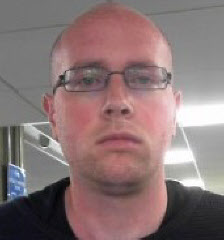
Thomas Birley
PhD Student (NRPDTP)
Email: t.birley@uea.ac.uk
Primary supervisor: Professor Cock van Oosterhout
Secondary supervisor: Professor Thomas Mock
Biography
I obtained an MSci from University College London in Genetics, Evolution and Environment, undertaking a research project on the evolution of Apicomplexa. I am currently employed at the Mock Lab researching a method of obtaining cell free DNA from aquatic environment using CRISPR-Cas9. In October 2019 I am due to start a PhD in phytoplankton genetics. The polar phytoplankton Fragilariopsis cylindrus has been shown to an unusual biallelic expression in response to the seasonal variation in environmental conditions. I will be researching the molecular mechanisms that that cause this, whether this is unique in F. cylindrus, and what is the significance for this on its evolution.
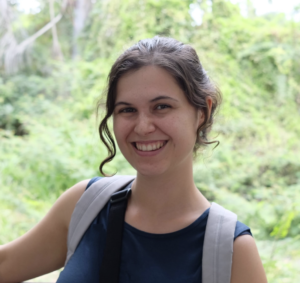
Natalie Cook
Master's (MRes) Student
Email: natalie.cook@uea.ac.uk
Primary supervisor: Professor Thomas Mock
Biography
I graduated with a Biology degree from the University of Sussex, where I explored both molecular and ecological studies. For my undergraduate project, I used remote vessel tracking software to analyse fishing pressure in Sussex coastal habitats. During a summer placement, I assisted in projects that explored the effects of weather on bumblebee foraging ecology.
Now in my Master's project at UEA, I will focus on light sensitive proton-pumping rhodopsin proteins in diatoms. I will explore rhodopsin diversity across diatom species and examine their adaptive significance in harsh conditions, in particular low light intensities.

Longji Deng
PhD Student
Email: longji.deng@uea.ac.uk
Primary supervisor: Professor Thomas Mock
Secondary supervisor: Professor Cock van Oosterhout
Biography
I have completed my BSc and MSci degrees in the School of Environmental Sciences at the University of East Anglia. In my Master’s project, I explored the impact of ocean acidification and iron limitation in the diatom Thalassiosira pseudonana. In my Ph.D. project at UEA, I will apply a combination of reverse genetics, transcriptomics and metatranscriptomics to explore the biochemical function of proton-pumping Rhodopsin proteins in diatoms.

Shunan Fu
PhD Student (CSC Funded Scholar)
Email: Shunan.fu@uea.ac.uk
Primary supervisor: Professor Thomas Mock
Secondary supervisor: Professor Cock van Oosterhout
Biography
I have completed my BSc in Environmental Science at Hohai University and my MSc at Ocean University of China(OUC), also in Environmental Science. While studying at OUC, my research interest is the ecology of plankton in the Yellow Sea, especially the variation of the community structure of zooplankton. In addition, I joined the OUC-UEA joint training project and got my second MSc in Environmental Science at UEA. Currently, I am a PhD student and my PhD project is going to work on identifying the role of DNA methylation in the adaptive evolution of diatoms.

Joshua Margand
Undergraduate Student and Researcher (ENV)
Email: j.margand@uea.ac.uk
Biography
I am an undergraduate student studying for a BSc in Environmental Science at the UEA. For my dissertation I am currently studying arctic diatoms looking at whether bioluminescence is enabling them to maintain population stocks during the Arctic winter. I am particularly interested in the potential role of rhodopsins in this process. In the lab, I am working with both wild type and genetically modified phytoplankton species Thalassiosira pseudonana and Nitzschia putrida as well as Fragilariopsis cylindrus and looking at their growth responses under different light conditions in a bioluminescence experiment I have devised.
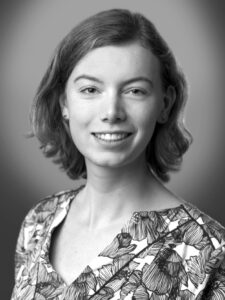
Antonia Otte
PhD Student (NRPDTP)
Email: A.Otte@uea.ac.uk
Biography
During my B.Sc. degree in biology at the University of Bremen, Germany, I studied Trypanosoma sp., the pathogen causing African sleeping sickness in livestock and humans. To look at the transmitting tsetse fly and bacteria present in its gut will help to understand how infections are established, and eventually to identify potential points of intervention. Seeing the importance and benefits that molecular life sciences can have on health and the environment, I decided to continue research at the interface of molecular and environmental biology in collaboration with the Alfred Wegener Institute in Bremerhaven during my M.Sc. in Biochemistry and Molecular Biology. In my master’s project, I analysed metatranscriptomic data from a harmful algal bloom (HAB) to identify cellular processes and enzymes involved in the formation of HABs and the associated toxicity. Following up on the use of molecular analyses to understand marine organisms, I started my PhD in October 2022 and will study the role of mitotic recombination in genome evolution of polar phytoplankton.

Derui Song
PhD Student (CSC Funded Scholar)
Email: d.song@uea.ac.uk
Primary Supervisor: Professor Vincent Moulton (School of Computing)
Secondary Supervisors: Professor Thomas Mock
Biography
I studied marine biology at Ocean University of China and graduated in 2023 with a master's degree. My research during my master's focused on using time-series studies to reveal the impact of climate change on Vibrio communities in temperate coastal areas, using Qingdao as an example. I started my PhD in June 2024, analysing the Arctic Ocean metagenomes collected by the MOSAiC expedition, which is the largest single collection of Arctic Ocean metagenomes to date. MOSAiC is the first survey to observe the Arctic ocean throughout the entire year, including the polar winter. My research aims to uncover the diversity of NCLDVs (Nucleocytoplasmic Large DNA viruses) in a warming Arctic Ocean and understand the biotic and abiotic drivers of their diversity and evolution.
Research interests: Bioinformatics, data science, metagenomics and metatranscriptomics, Arctic Microbiology

Marc Toghill
Undergraduate Student and Researcher (ENV)
Email: m.toghill@uea.ac.uk
Biography
I am an undergraduate student at the University of East Anglia, doing a BSc in Environmental Sciences. For my dissertation, I am investigating whether bioluminescence could be a possible light source for arctic diatoms during the polar night. I will do this by growing cultures with an LED which I have manipulated to imitate bioluminescent organisms. According to in situ light measurements, their flashing rhythms appear to be random, which I can recreate using an Arduino board to generate random flash frequencies and intensities.
Johanna Winder
PhD Student (NRPDTP)
Email: J.Winder@uea.ac.uk
Primary Supervisor: Professor Thomas Mock
Secondary Supervisor: Professor Cock van Oosterhout
I obtained my BA (Hons) in Natural Sciences from the University of Cambridge, graduating in 2020. During my undergraduate degree, I pursued a variety of interests, ranging from cell and developmental biology to ecology and evolution. This piqued my interest in environmental microbiology, and I furthered this by embarking on a research project in northwestern Canada, using shotgun metagenomics to explore how permafrost thaw affects microbes in thermokarst lake sediments. Following this, I became interested in applying microbiology to solve global challenges, and to this end undertook an MSc by research at the University of Exeter in the Exeter Microbial Biofuels Group. I then decided to turn to the intersection of biotechnology and microbial physiology, ecology and evolution, through a PhD at UEA supervised by Professor Mock. I began my studies in October 2021, and my research aims to understand at the function of ice-binding protein diversity in the polar diatom F. cylindrus.
Awards
Prize for the best poster at the Annual Meeting of the British Phycological Society in 2023 (Newcastle).
Biointerphases Presentation Award at the IBP Conference in 2022.
Research Interests
Polar microbiology, biotechnology, diatom ecophysiology, extremophiles
Dr Andrew Toseland
Post-Doctoral Researcher
Email: Andrew.Toseland@earlham.ac.uk
Biography
My degree in Software Engineering at UWE Bristol focused on Object Oriented design and programming in Java. My main interests lay in Computer Science topics, particularly machine learning, which was the focus of my final year project. My PhD is focused on a computational analysis of marine eukaryote metatranscriptome data using Perl and published bioinformatics tools to develop an analysis pipeline.
Eukaryotic marine metatranscriptomics; genome assembly; high-throughput sequencing.
Selected publications:
Toseland A., Daines S. J., Clark J. R., Kirkham A., Strauss J., Uhlig C., Lenton T. M., Valentin K., Pearson G. A., Moulton V., Mock T. (2013) The impact of temperature on marine phytoplankton resource allocation and metabolism. Nature Climate Change
(DOI: 10.1038/nclimate1989)
Toseland A., Moxon S., Mock T., Moulton V. (2014) Metatranscriptomes from diverse microbial communities: assessment of data reduction techniques for rigorous annotation. BMC Genomics (DOI: 10.1186/1471-2164-15-901)
William Boulton
PhD Student (ARIES)
Email: W.Boulton@uea.ac.uk
Primary Supervisor: Professor Vincent Moulton (School of Computing)
Secondary Supervisors: Professor Thomas Mock
Dr Richard Leggett (The Earlham Institute)
Biography
I studied mathematics at the University of Cambridge and graduated in 2016 with an Math degree, before working in mathematical modelling and software engineering at a small engineering firm. I became interested in metagenomics during an internship at EMBL-EBI, where I worked on projects about SARS-CoV-2 evolution and variant tracking through wastewater metagenomes. This led to applying for a PhD place at the UEA, supervised by Vincent Moulton, Thomas Mock, and Richard Leggett, and funded by the ARIES DTP. I started my PhD in October 2021, and will be analysing the largest single collection of Arctic ocean metagenomes, collected by MOSAiC - which is the first survey of the Arctic ocean observing a full annual cycle, including the polar winter. My research aims to uncover the microbial diversity of a warming Arctic ocean, and understand the biotic and abiotic drivers of this diversity.
Awards
Student Travel Award for a talk at the 2nd MOSAiC Conference / University of Colorado Boulder (USA) in 2023.
Research interests: Bioinformatics, data science, metagenomics and metagenomic assembly, Arctic microbiology
Yixuan Li
PhD Student (CSC Funded Scholar)
Email: Yixuan.li@uea.ac.uk
Primary Supervisor: Professor Thomas Mock
Secondary Supervisors: Professor Cock van Oosterhout; Dr. Yunyun Zhuang (Ocean University of China)
Biography
I have received my MSc degree in College of Environmental Science and Technology at the Ocean University of China. In my Master’s project, I studied community structure of zooplankton and functional diversity of crustacean zooplankton in the Southern Yellow Sea, China. In my PhD project at UEA, I will apply molecular methods (RNAseq, RT-qPCR, CRISPR/Cas mediated genome editing, etc) to identify the gene encoding cyanate transporter in marine eukaryotic phytoplankton and reconstruct the pathways responsible for cyanate assimilation. And then, I will investigate the diversity, biogeographic distribution, evolution and expression of the target gene by screening the existing omics datasets.
Research Interests
Cyanate transporter, cyanate assimilation, diatoms, nitrogen, genome editing
Publications
Li, Y., Ge, R., Chen, H., Zhuang, Y., Liu, G., Zheng, Z., 2022. Functional diversity and groups of crustacean zooplankton in the southern Yellow Sea. Ecol. Indic. 136, 108699.
Ge, R†., Li, Y†., Chen, H., Lei, F., Zhuang, Y., Liu, G., 2022. Diel Vertical Distribution of Mesozooplankton Functional Groups in the North Pacific Subtropical Gyre: A Case Study. Front. Mar. Sci. 9, 854642.
Xuanji (Arthur) Yang
Master's Student
Email: xuanji.yang@uea.ac.uk
Primary Supervisor: Professor Thomas Mock
Biography
I completed my undergraduate studies at Chongben Honors College of Ocean University of China (OUC). In my project at OUC, my main work involved extracting and screening algicidal bacteria from the sediment mud samples of Jiaozhou Bay, which are effective against Alexandrium pacificum, to study their algicidal properties and mechanisms. In my master's project at UEA, I will engage in bioinformatics, performing integrative analysis of Ribo-seq and RNA-seq data with the model diatom Thalassiosira pseudonana to detect translationally regulated genes.
Research interests
Bioinformatics, ribosome profiling, genomics, genetics.
Jingyi Zhu
Visiting PhD Student (CSC Funded Scholar)
Email: Jingyi.Zhu@uea.ac.uk
Primary Supervisors: Professor Thomas Mock; Professor Yunyun Zhuang (Ocean University of China)
Secondary Supervisors: Professor Vincent Moulton
Biography
I have completed my BSc degree in Environmental Science and Biological Science at Tianjin Normal University. In my Master’s project at Ocean University of China, I studied the process of spliced leader (SL) RNA trans-splicing, and the diversity and gene structure characteristics of SL RNAs in marine copepods. Through the research work above, I have developed a stronger scientific interest in zooplankton. After becoming a doctoral student, I fouces on the diel vertical migration (DVM) of mesozooplankton communities and the metabolic activities in this process based on the combination of 18S rRNA barcode and metatranscriptomics.
Research interests
Zooplankton, DVM, metatranscriptomics, circadian rhythm, bioinformatics

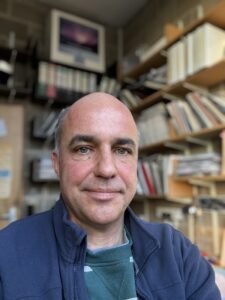

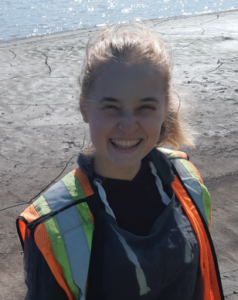

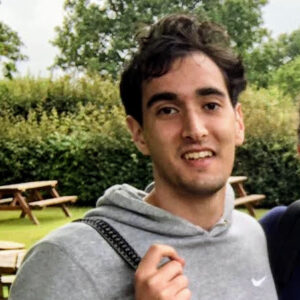
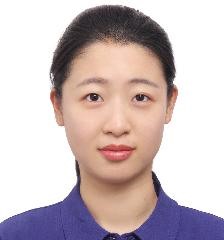
23-214x300.jpg)
